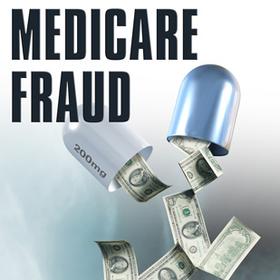 Healthcare in this country is currently beset by many unknowns while the Senate debates the bill passed by the House this spring, a measure that stands to rewrite healthcare as millions of Americans have known it for the last several years. However, according to a recent speech, one facet of healthcare not veiled in uncertainty is the U.S. Department of Justice’s (DOJ) view on healthcare fraud.
Healthcare in this country is currently beset by many unknowns while the Senate debates the bill passed by the House this spring, a measure that stands to rewrite healthcare as millions of Americans have known it for the last several years. However, according to a recent speech, one facet of healthcare not veiled in uncertainty is the U.S. Department of Justice’s (DOJ) view on healthcare fraud.
Acting Assistant Attorney General assures audience Sessions will be invested in fraud
In a speech at the American Bar Association’s (ABA) 27th Annual Institute on Health Care Fraud last month, the DOJ Criminal Division’s Acting Assistant Attorney General Kenneth Blanco used this unambiguous language in his opening remarks:
“[L]et me be clear: health care fraud is a priority for the Department of Justice. Attorney General Sessions feels very strongly about this. I can tell you that he has expressed this to me personally. The investigation and prosecution of health care fraud will continue; the department will be vigorous in its pursuit of those who violate the law in this area.”
Rooting out fraud in the healthcare industry has long been a priority for the DOJ; Blanco reassured those gathered at the Institute that, under the Trump administration, that dedication to stamping out fraudulent practices will be ongoing.
There have been rumblings of late that the DOJ Criminal Division’s focus under Trump will be gobbled by issues around immigration and violent crime. Indeed, Sessions is expected to re-prioritize prosecutorial categories for the DOJ. However, perhaps in an attempt to allay fears, Blanco underscored Sessions’ belief that a vigilance to healthcare fraud — practices that drain the government of $100 billion each year — is beyond necessary, it is vital.
DOJ has reclaimed billions of dollars fraudulently bilked from the government
Blanco referenced key approaches to healthcare fraud employed by the DOJ over the past few years: analyzing Medicare and Medicaid data with real-time technology for the purpose of detecting patterns of fraud before they become widespread or exorbitant; the collaborative fraud-unraveling efforts of U.S. Attorney’s Offices, agencies at the state and federal levels, and the Medicare Fraud Strike Force; and ongoing work by the government’s Health Care Fraud Unit (which operates under the umbrella of the Criminal Division’s Fraud Section). Blanco made it clear that those resources for fighting fraud will continue with Sessions leading the DOJ.
Blanco’s speech cited specific examples that exemplify the DOJ’s commitment and effectiveness in fighting fraud.
For instance, the Tenet Healthcare Corporation case that came to a close last October: the national hospital chain was charged criminally and civilly for a scheme in which Tenet allegedly paid pre-natal clinics bribes aggregating into the millions of dollars for Medicaid enrollee referrals. Tenet pled guilty and paid $513 million to bring the case to a resolution. In a case still pending, an indictment was brought against John Holland, one of Tenet’s senior vice presidents, alleging that he worked to coordinate kickbacks and bribes in return for patients being referred to his corporation’s hospitals.
A successful prosecution in the summer of 2016 further buttressed Blanco’s perspective on the DOJ’s Health Care Fraud Unit working hard and productively: Last July the DOJ charged three Floridians (the owner of assisted living facilities, a physician’s assistant, and a hospital administrator) for allegedly submitting $1 billion in fake Medicare and Medicaid claims and for engaging in kickbacks and bribery schemes.
More recently, two Detroit-area physicians along with a co-conspirator were indicted in April for allegedly performing female genital mutilation on minors. The U.S. Attorney’s Office for the Eastern District of Michigan and the Detroit area Medicare Fraud Strike Force joined forces to uncover this alleged criminal activity.
“I could go on and on about all the cases that the Department of Justice is bringing against institutions, medical professionals, administrators and others, who have chosen to commit Medicare fraud to make money,” Blanco said toward the end of his speech. “I think that these three cases highlight the kind of important, complex health care fraud cases we are pursuing and will continue to pursue. Our prosecutors and investigators are committed and dedicated; they are working very hard every day.”
This blog post is provided for educational purposes only and is not offered as, and should not be relied on as, legal advice. Any individual or entity reading this information should consult an attorney for their particular situation. For more information/questions regarding any legal matters, please email [email protected] or call 310.203.2800.